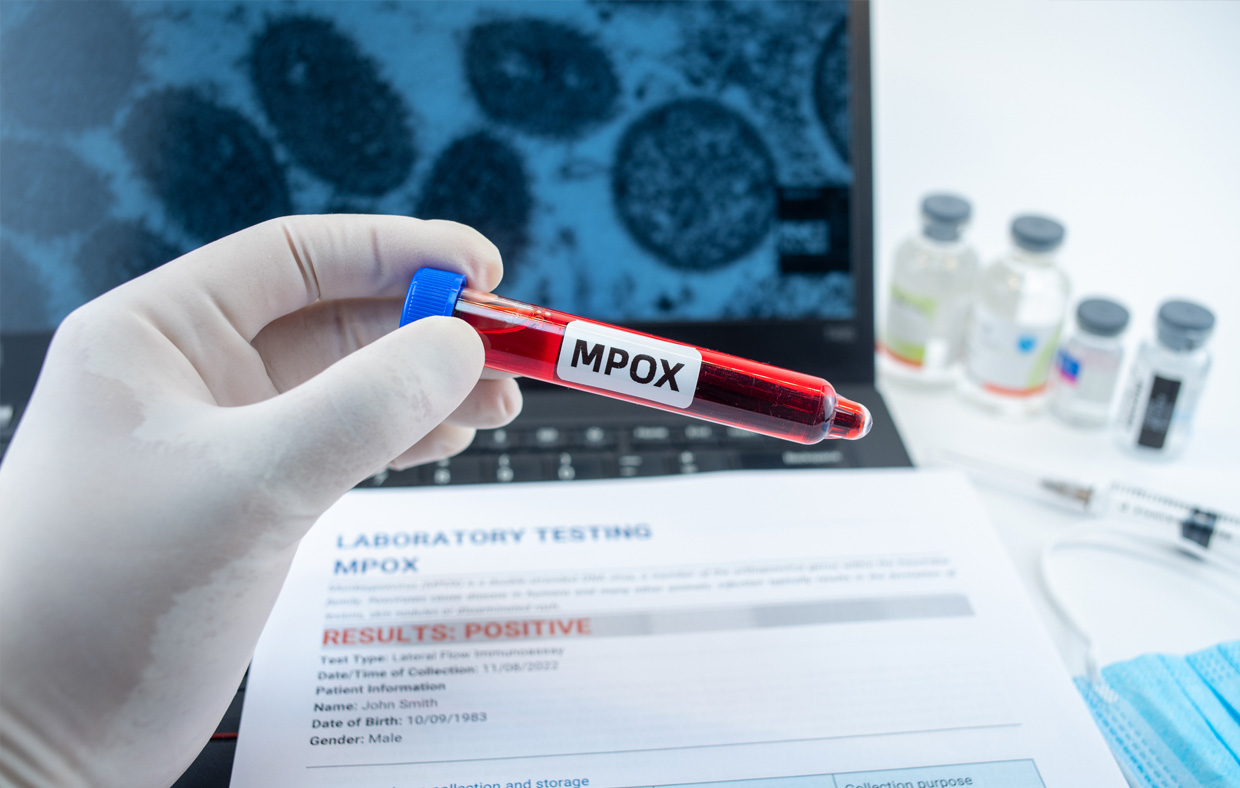
Monkeypox Information
Are You Concerned About Monkeypox (MPX)?
What you need to know:
MPX symptoms usually start within 3 weeks of exposure to the virus.
If someone has flu-like symptoms, they will usually develop a rash 1 to 4 days later.
MPX can spread from the time symptoms start until the rash has healed, all scabs have fallen off, and a fresh layer of skin has formed. The illness typically lasts 2 to 4 weeks. Treatment may be required so contact your MCHC healthcare provider if you have had a known exposure or have symptoms.
MPX has a low incident rate in Mendocino and Lake County compared to other counties in California.
MPX requires “close, personal, often skin-to-skin contact,” including, direct contact with MPX rash, scabs, or bodily fluids, and/or contact with respiratory (lungs) secretions.
You can also be at risk if you have shared unsanitary bedding, towels or clothing with someone infected with MPX.
The majority of those infected have sexual partners whose health status is unknown to them.
The WHO states that sexual contact is the likely transmission event for 91.5% of patients. “The most common symptom is any rash and is reported in 83% of cases with at least one reported symptom,” according to the World Health Organization.
You can lower your risk of infection during sex, but you cannot eliminate it.
Even if you feel well, here are some ways to reduce being exposed to MPX:
- Take a temporary break from the high-risk behaviors discussed including limiting your number of sex partners
Avoid saunas and other public spaces that involve skin exposure - Condoms can protect you and your partner from some viruses, but MPX is transmitted skin-to-skin
- Avoid kissing and face-to-face contact
Remember to wash your hands, and all bedding or other items exposed to skin
CDC recommends vaccination for people who have been exposed or are at high risk for Monkeypox exposure.
The MPX vaccine is not widely available currently. If you are experiencing situations that may put you in a high-risk category for MPX exposure, discuss your concerns with your healthcare provider at MCHC. Having HIV does not make you more at-risk of exposure.
For accurate updates and details, visit:
cdc.gov/poxvirus/monkeypox/response/2022/index.html or search “CDC monkeypox” and look for the cdc.gov link.

 MyChart Login
MyChart Login